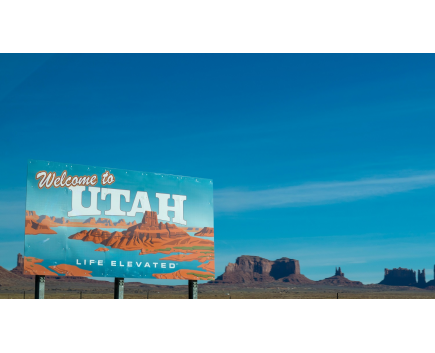
Global Kratom Coalition Calls Failed Utah Bill "Onerous and Vague"
In a press release, the Global Kratom Coalition (GKC) lauded the failure of Utah House Bill 509, which would have passed regulations GKC referred to as "onerous and vague".
In a press release, GKC executive director Matthew Lowe said, "We appreciate the desire for the bill's sponsors to address safety concerns. However, suspending HB 509 represents a positive outcome for Utah consumers and the dietary supplement industry at large. Enacting pre-market approval measures would have been contrary to federal law, specifically the Dietary Supplement Health and Education Act (DSHEA) of 1994, marking an unprecedented regulatory paradigm."
The press release went on to call for more enforcement of Utah's existing Kratom Consumer Protection Act (KCPA). Around the country, various KCPAs have been passed without an enforcement mechanism or funding allocated for enforcement.
"Funding for enforcement remains an issue in Utah," the release stated. "A recent survey showed that 64 percent of the kratom products sold in Utah are not registered with UDAF [Utah Department of Agriculture]."
The GCA's solution is a tax on kratom products that would fund enforcement measures, announcing that they "will continue to work with the legislature to consider a tax in coming legislative sessions."
Utah was the first state in the US to ever regulate Kratom by passing the Kratom Customer Protection Act in March 2019. This was the origin of the KCPA and it was later followed by neighboring states such as Arizona and Nevada.
The Act defines terms related to kratom products, such as "kratom processor" and "kratom product". It sets safety standards for kratom products, including restrictions on synthetic alkaloids and harmful substances. Kratom processors must disclose the amount of mitragynine and 7-hydroxymitragynine on product labels. Kratom processors and retail establishments must register with the Utah Department of Agriculture and Food. The Act imposes fines for violations, such as selling unregistered or adulterated kratom products. The goal of the Act is to ensure that kratom products sold in Utah are safe, unadulterated, and honestly presented.
Utah is a major hub for the dietary supplements industry, with a diverse range of companies involved in the development, production, and distribution of these products. The industry includes everything from nutritional supplements to essential oils and personal care items.
The Dietary Supplement Health and Education Act (DSHEA) of 1994, championed by Utah Senator Orrin Hatch, played a significant role in shaping the industry. This law defined and regulated the sale of dietary supplements, allowing manufacturers to make general health claims without FDA approval.
he natural products sector in Utah generates upwards of $10 billion a year. The state is home to many well-known companies, including USANA Health Sciences, Nature's Sunshine Products, Synergy Worldwide, and Nutraceutical Corporation.
Despite the industry's growth, there are ongoing discussions about the need for stricter regulations to ensure product safety and efficacy.














Comments
Leave your comment